Find out the latest in human rights news
The Illegal Migration Bill
Rishi Sunak has unveiled plans which will see asylum seekers arriving to the UK in small boats detained and deported. Such plans mark yet another assault on the rights of refugees, criminalising and punishing the most vulnerable. This includes human rights defenders who are forced to flee from countries where they are silenced, persecuted, tortured, and killed for standing up for what’s right.
In 2022, over 69% of the people PoC supported were refugees or migrants. These people need their fundamental right to seek asylum protected.
See our social media posts on the bill here:
We are a member of Together With Refugees, a coalition of organisations that believe in a more compassionate approach to refugees. We call for a better approach to supporting refugees that is more effective, fair and humane. Find out more about Together With Refugees, along with how to get involved, here.
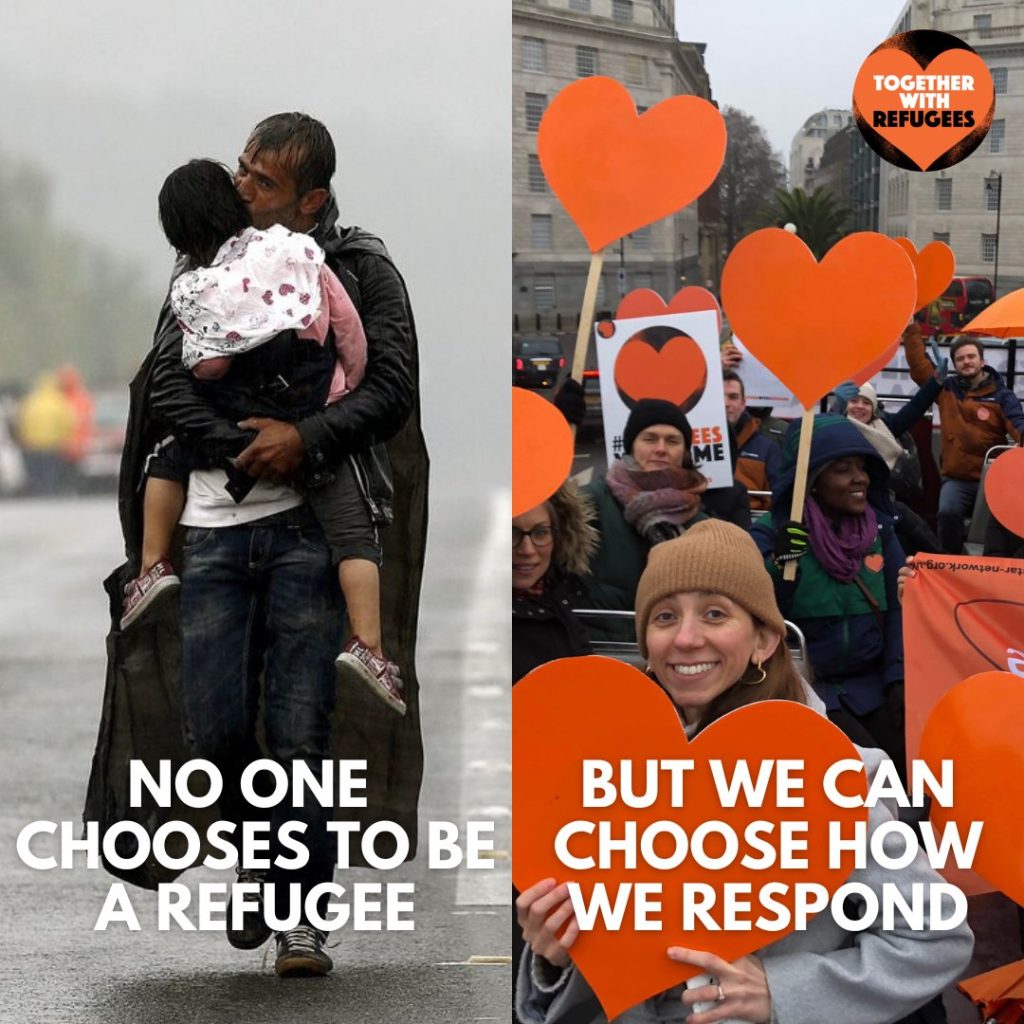
UPDATES
As of 24th May, the Bill is still being debated in the House of Lords. The Archbishop of Canterbury, Justin Welby, vows to keep fighting the reforms, insisting he ‘will not abandon his position’ against the ‘morally unacceptable’ bill (The Guardian, 2023).
30th May- The UN human rights chief has stated that he has formally conveyed his concerns over a new British migration law to the government stating ‘we have very serious concerns from an international refugee law and from an international human rights law perspective’ (Reuters, 2023).
30th June- The Court of Appeal rules that government plans to send asylum seekers to Rwanda are unlawful. PoC celebrates the official condemnation of this scheme, recognising this victory for reason and compassion. We urge the government to now rethink its entire approach and focus on protecting, not punishing, those who seek asylum on our soil.
17th July- The Illegal Migration Bill is passed by the UK government and will soon become law. PoC are deeply disappointed by this news. This legislation is an assault on the rights of refugees and will only serve to criminalize and punish the most vulnerable. Prisoners of Conscience who had no choice but to come to the UK now may be left with no choice at all. They need our help now than ever before.
20th July- We are saddened to add to this page with the news that the Bill received Royal Assent on the 20th July 2023, becoming the Illegal Migration Act.
Sudan Conflict
On 15th April 2023, an armed conflict began between rival factions of the government in Sudan. Reports currently state that the Sudanese Armed Force have since agreed to a ceasefire on the 25th April (The Guardian, 2023). Yet the suffering is far from over for Sudanese citizens.
18 million people are experiencing “acute food insecurity” in Sudan, with the situation in the country set to become “the world’s worst hunger crisis,” according to Edem Wosornu, Director of Operations and Advocacy at the UN Humanitarian Affairs Office (OCHA) in a recent meeting with the UN Security Council on 20 March.
Of those 18 million, 90% live in the “conflict hotspots” of Darfur, Kordofan, Khartoum, and Al Jazirah. With the price of basic food commodities increasing by 83%, a widespread destruction of critical infrastructure, and an estimated 220K children at risk of death in the “coming weeks and months,” Wosornu described the situation as “the stuff of nightmares.”
So far, the UN’s appeal for $2.7B in aid for Sudan so far has only raised $131M, less than 5% of the target. In view of a “looming famine”, Wosornu called for “tangible commitments” at the donor conference in Paris on April 15. Worsonu’s comments were accompanied by a further statement from UN Food and Agriculture Organization (FAO) Deputy Chief Maurizio Martina, urging an “immediate cessation of hostilities” while calling Sudan’s 2024 food production outlook “bleak.”
In the last three years, PoC have supported over 40 prisoners of conscience from Sudan. The news of the conflict, and the fact that both forces have a history of violating international human rights law, is a devastating reminder that human rights abuses will continue in Sudan.
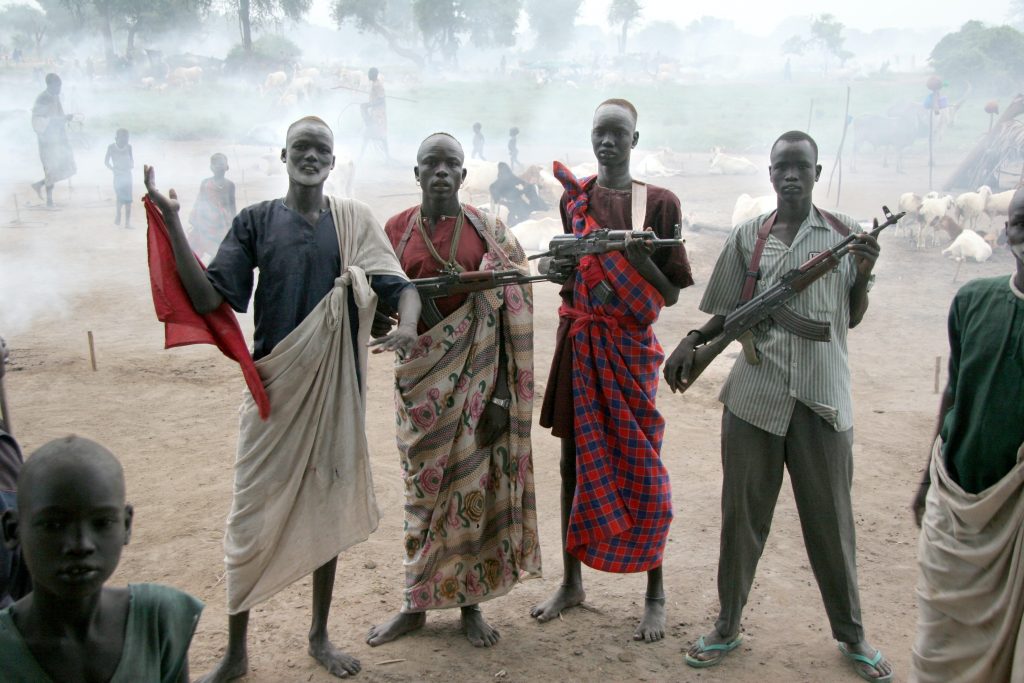
Sources:
https://www.unocha.org/news/ocha-warns-security-council-sudan-will-soon-be-worlds-worst-hunger-crisis
https://press.un.org/en/2024/sc15634.doc.htm
https://news.un.org/en/story/2024/03/1147781
https://www.africanews.com/2024/03/21/sudan-to-become-the-worlds-worst-hunger-crisis-un/
https://www.fao.org/newsroom/detail/sudan-fao-issues-stark-warning-over-deeply-concerning-scale-of-hunger/en
Women Human Rights Defenders
Women’s Rights in Afghanistan
The Taliban are gradually stripping women of their fundamental human rights. Though initial promises were made to uphold women’s and minority rights, they have instead imposed strict and medieval restrictions1. See below a timeline of actions against Afghan women:
September 2021
- Universities are segregated. Women are allowed to continue attending university, but classrooms are segregated by gender and head coverings are made mandatory (US News, 2023).
March 2022
- Just hours after schools reopened following the pandemic, the Taliban government cancels classes for teenage girls (those over the age of 12). Hundreds of thousands of girls are barred from attending classes (Al Jazeera, 2022).
May 2022
- The government mandates that women must cover from head to toe when they leave their homes (OHCHR, 2023). This includes a mesh covering over their faces. If these restrictions are violated, their male guardians face punishment, and even imprisonment (US News, 2023).
November 2022
- Women are barred from parks and gyms, as well as other public spaces including funfairs (The Guardian, 2022). The ban marks yet another attempt to squeeze women out of Afghan society, and confine them to their homes.
December 2022
- Women are banned from attending universities and working for NGOs. The UN and several countries condemn the order, with the UN’s Special Rapporteur to Afghanistan denouncing the ruling as a ‘new low further violating the right to equal education and deepening the erasure of women from Afghan society’ (BBC, 2022).
- The ban of women working in NGOs casts fear for international aid groups, who are concerned that it will inhibit their ability to provide much needed humanitarian aid (US News, 2023)
April 2023
- Ban on Afghan women working in the U.N. This law results in over 3,000 of UN national staff members, including approximately 400 Afghan women, to refrain from reporting to offices over concerns for their safety (The Diplomat, 2023).
The need to support women human rights defenders in Afghanistan has reached a devastating high since the Taliban takeover.
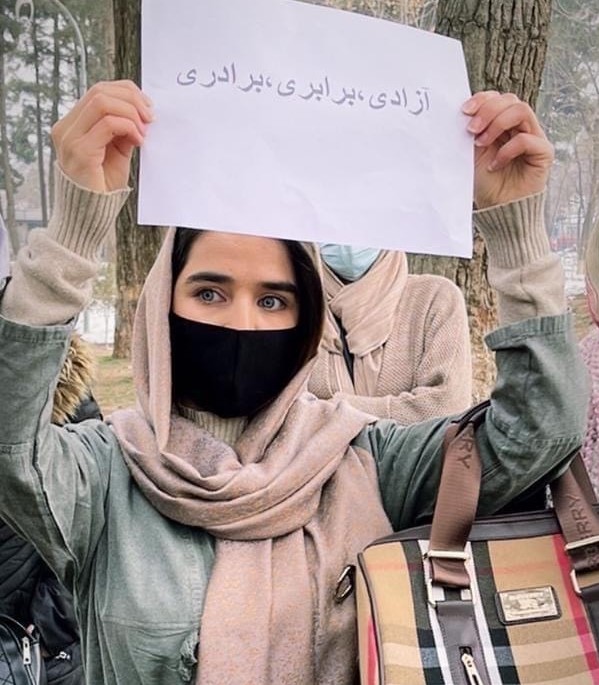
Read here the story of Lina, a lawyer and human rights defender from Afghanistan, who knows first-hand the dangers of standing up against Taliban’s repression.
Women’s Rights in Iran
The authorities in Iran continue to treat women as second-class citizens (Amnesty International, 2023). For example, the legal age of marriage for girls is 13 years old, and fathers can obtain permission for marriage at an even younger age.
An ongoing series of protests and civil unrest began in September 2022 in response to the death of 22-year-old Mahsa Amini, who was arrested by morality police for allegedly violating Iran’s strict rules requiring women to cover their hair with a hijab. Certain reports state that officers beat her head with a baton, though Iranian police claim she suffered a heart attack (BBC, 2022).
The UN’s International Fact-Finding Mission to the Islamic Republic of Iran has reported that the death of Mahsa Amini in September 2022 was both unlawful and the responsibility of the Iranian state. Sarah Hossain, the mission’s chair, stated that “over multiple months” following Amini’s death and resulting protests, security forces shot at protestors “at very short distances in a targeted fashion” – with over 550 individuals killed over “multiple months” in 26/30 Iranian provinces.
Amini, 22, died within the custody of Iranian “morality police” following non-observance of Iran’s mandatory hijab law. The UN mission was established in November 2022 in order to “thoroughly and independently investigate alleged human rights violations” in the aftermath of the event. Hossain claimed that the Iranian state had allegedly since begun using artificial intelligence (AI) via mobile phone apps “to monitor and enforce compliance by women and girls with mandatory hijab rules.”
Women and girls were at the forefront of a popular uprising against this barbaric detainment, challenging decades of gender-based discrimination and violence (Amnesty International, 2023).
The UN’s Special Rapporteur to Iran, Javaid Rehman, also noted that 834 people, including children, were executed in 2023 – a 43% rise from the year prior. While many of these executions were attributed to drug use, the fact-finding mission also found that at least 9 “young men” had been “arbitrarily executed” between Dec. 2022 and Jan. 2024.
PoC has provided 36 grants to Iranian prisoners of conscience since 2022. The need for aid in Iran is likely to worsen with tough crackdown on protestors and dissidents.
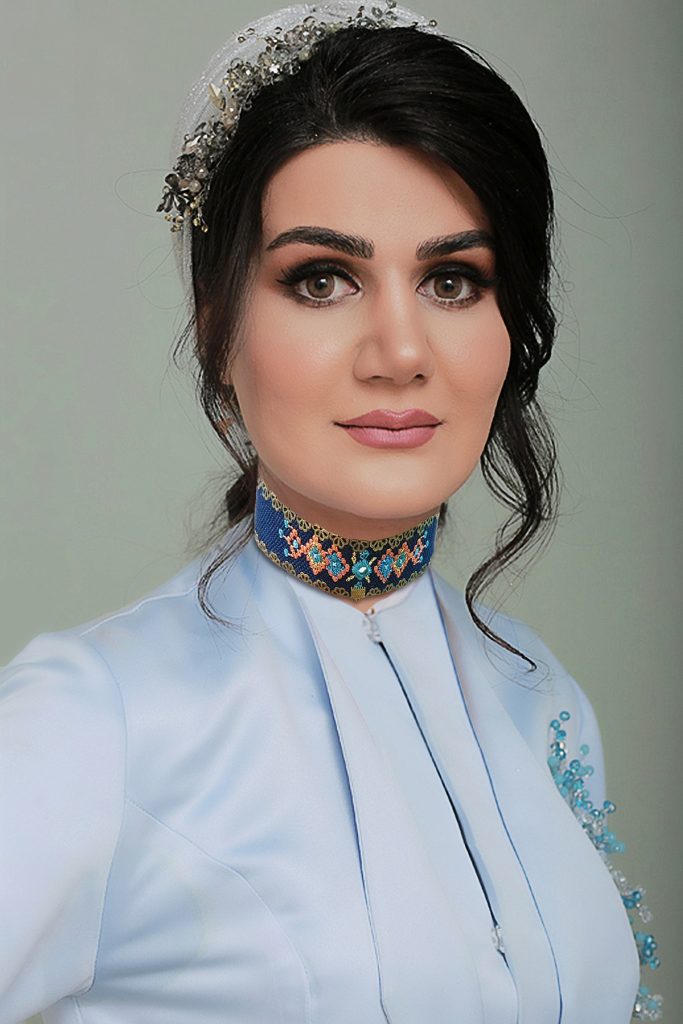
Read here the story of Sahar, a Iranian singer, poet and translator, who was forced to flee Iran after speaking out against the repression of women.
Sources:
https://news.un.org/en/story/2024/03/1147681
https://www.ohchr.org/en/hr-bodies/hrc/ffm-iran/index
https://www.ohchr.org/en/news/2022/11/human-rights-council-establishes-fact-finding-mission-investigate-alleged-human-rights
Hong Kong
Hong Kong’s Legislative Council has passed the Safeguarding National Security Bill, otherwise known as Article 23 stated to “prevent, suppress and punish espionage activities, conspiracies and traps” and taking effect from 23 March.
Citizens who are found to have committed “treason” will see life imprisonment, while individuals who do not disclose knowledge of such offences are now liable to up to 14 years in prison. Hong Kong’s definition of “treason” includes those who join an external armed force at war with China, as well as individuals who intend to “endanger [its] sovereignty, unity or territorial integrity.”
Insurrection is now liable to life imprisonment, espionage up to 20 years imprisonment, sabotage “endangering national security,” whether it be “with intent” or through “being reckless” also 20 years imprisonment, and “external interference” with the intent to influence Hong Kong or Beijing’s administration will see a sentence of 14 years.
Further provisions found within the bill include Beijing’s sovereignty over the legislation’s interpretation, the ability to be tried within a “closed court,” the ability for police to detain an arrested individual for a maximum of 16 days without charge, and the ability to restrict an individual’s ability to receive legal consultation.
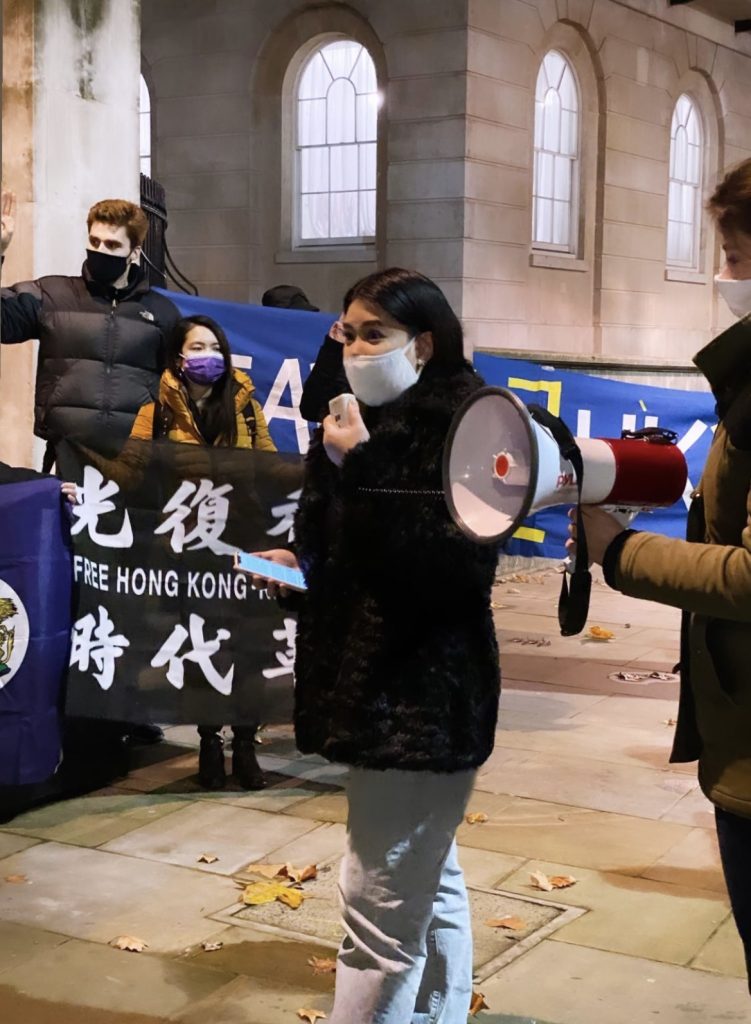
SOURCES:
https://www.info.gov.hk/gia/general/202403/19/P2024031900717.htm
https://www.gld.gov.hk/egazette/pdf/20242811e/es3202428112.pdf
Ugandan Anti-LGBTQ+ Laws
The Ugandan Parliament recently approved harsh anti-LGBTQ+ laws. These laws will endanger the rights of gay people in Uganda, as well as those who support and defend them. Despite President Yoweri Museveni asking for certain provisions from the original legislation to be toned down, the bill retains most of the harshest measures adopted in March. These include the death penalty for certain same-sex acts (The Guardian, 2023). Anyone ‘promoting’ homosexuality could face up to 20 years in prison.
UPDATES- 31.05.23
President Museveni has assented to the Anti-Homosexuality Bill on the 29th May. Amnesty International’s Deputy Regional Director said:
This is a desperately dark day for LGBTI rights and for Uganda
(Amnesty, 2023).
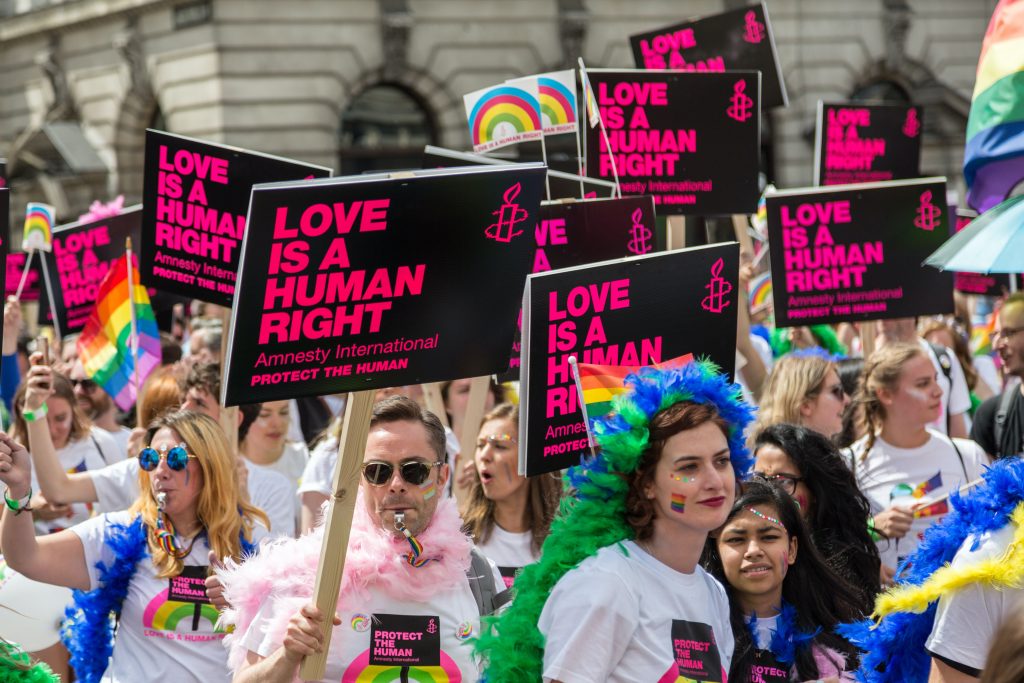
Ghanian Anti-LGBTQ+ Laws
On 28 February Ghana’s parliament passed The Human Sexual Rights and Family Values Bill, requiring citizens to “promote and respect the proper human sexual rights and Ghanaian family values.” Ghanaians are expected to report individuals who engage in “LGBTTQQIAAP+ and related activities,” while behaviour such as same-sex intercourse and marriage sees an increased jail sentence of up to 5 years in prison – the same punishment as beastiality.
The promotion and/or advocacy of such behaviour, described as “propaganda” within the legislation, will also by law result in 5-10 years imprisonment, while organisations associated with such groups are prohibited and their continued existence will result in 6-10 years in prison. Individuals identifying within LGBTTQQIAAP+ will also not be allowed to adopt, and will not be eligible for welfare.
SOURCES:
https://www.parliament.gh/ViewerJS/#../epanel/docs/pb/14.%20FOURTEENTH%20SITTING,%2028TH%20FEBR
UARY,%202024.pdf
https://www.documentcloud.org/documents/21226918-promotion-of-proper-human-sexual-rights-and-ghanaian-family-values-bill-2021
https://www.bbc.co.uk/news/world-africa-68353437
For more updates on human rights news and current affairs, follow us on social media: